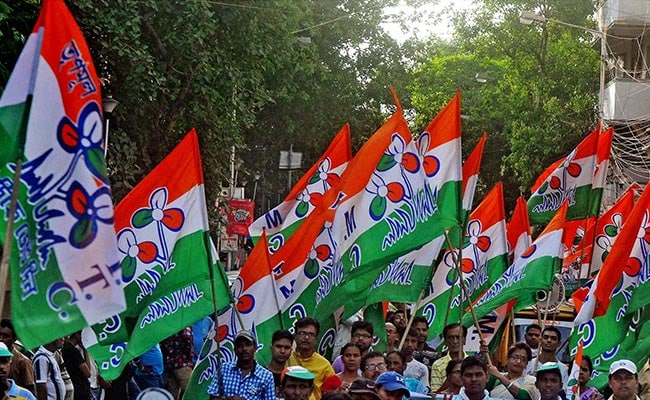July 21 is an emotional anniversary in the history of the Trinamool Congress. On this day in 1993, Mamata Banerjee, then the President of the Youth Congress in Bengal, led a protest march in the heart of Kolkata. The protestors were brutalised by the police. Innocent, idealistic young activists were shot dead and Mamata Banerjee herself was beaten up.
July 21, 1993 came at the intersection of the two defining political confrontations in Mamata Banerjee's life - against the authoritarian CPI(M) regime in Bengal and against internal saboteurs in the Congress itself. On that day, Didi stood alone; the rival party unleashed the might of the state on her, and her own party abandoned her, hoping she would lose her nerve. It was the day Trinamool was conceived, though the actual birth happened a few years later.
The formal moment of departure came on December 22, 1997. As Mamata Banerjee later wrote in her memoirs, My Unforgettable Memories, "News reached us that the Congress had expelled me from the party for six years. I was stunned, but I did not break down. I knew if I did, my colleagues and co-workers would lose heart." On January 1, 1998, the All India Trinamool Congress was announced.

The years 2021 (assembly election) and then 2024 (Lok Sabha election) will write the future of Bengal. (File Photo)
Many were ready to write the new party's obituary. The Congress had split several times in its history but very few of its breakaway groups had managed to carve an independent identity. In Bengal itself, the party had split five times previously. Stalwarts such as Ajoy Mukherjee (Bangla Congress, 1967), Priyaranjan Das Munshi (Congress [Socialist], 1979) and even Pranab Mukherjee (Rashtriya Samajwadi Congress, 1986) had tried to trace their own paths, but had failed. Most had had to head back to the Congress for political survival.
But Mamata Banerjee was determined to be different. "I am a fighter," she said at the time of founding the party, "I have never walked away from a fight. A life of struggle calls out for even more ...we love everyone with an open heart. We are moving ahead with the blessings of Ma, Mati, Manush." And move ahead she did, with admirable grit and resolve.
Gradually, the Congress that expelled her in Bengal was reduced to a rump, and Mamata Banerjee emerged as the only mass leader to reckon with. The battle against the CPI(M) took longer. But with her characteristic resilience, even when reduced to a single seat in parliament, Didi fought on. In 2011, after 34 years of rule, the CPI(M) was routed in the assembly election in the state. The two great political struggles of Mamata Banerjee's career had culminated in vindication.
July 21 this year found her in a pensive and yet steely mood. On Martyrs' Day, as we in Trinamool remember the date, she took a pledge of renewal. Didi gave an inspiring speech that day. For me, two key messages stood. She said, "I am made of flesh and blood. I am not a machine, I have a heart." Then she put out a clarion call: "Bengal will be run by the people of Bengal. Not by outsiders."
Those lines, especially the second one, gave me goose pimples. I realised my leader and my mentor was motivating Trinamool workers in the midst of the third defining struggle of her life - the battle against the BJP, but more than that, the battle for the soul of Bengal.
Her first statement attempts to draw a clear differentiation of Trinamool's politics of the heart from the BJP's cold, clinical political machine. The second statement needs to be understood even more carefully. In all the years I have known her, Mamata Banerjee has come across as a person without prejudice. Religion, language, cultural background or ethnicity, none of these matters to her. There is no "outsider" or "insider" in her family, her Bengal and her India. Why then did she talk about "outsiders" in the context of the upcoming assembly election in our state?
The point is simple. The forces that are seeking to displace Trinamool don't just want to win an election, they want to fundamentally destabilise Bengal's social harmony and tear apart its fabric. The inclusive and shared history of Bengal's people is under threat from those who are "outside" of this culture. And this genuinely worries Mamata Banerjee. This is what makes the third great struggle of Didi's political journey her most crucial. The years 2021 (assembly election) and then 2024 (Lok Sabha election) will write the future of Bengal. And Mother Courage herself is leading from the front.
PS: Didi entered national politics in December 1984, when she won the Lok Sabha election from Jadavpur constituency. 13 years later, on January 1, 1998, she founded Trinamool. Another 13 years later, in May 2011, she liberated Bengal from CPI(M) dictatorship. A further 13 years later is May 2024 ...maybe 13 is her lucky number!
(Derek O'Brien, MP, leads the Trinamool Congress in the Rajya Sabha)
Disclaimer: The opinions expressed within this article are the personal opinions of the author. The facts and opinions appearing in the article do not reflect the views of NDTV and NDTV does not assume any responsibility or liability for the same.


